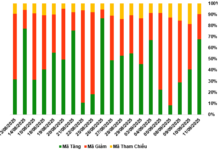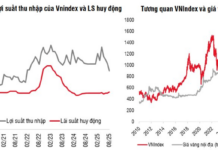The Vietnam General Confederation of Labour recently proposed that the Ministry of Labour, Invalids and Social Affairs research and implement the regulation on reducing normal working hours for labourers to less than 48 hours per week, in accordance with Resolution 101/2019/QH14 of the 8th Session of the 14th National Assembly.
WITH SUFFICIENT LIVING WAGES, LABOURERS WILL NO LONGER NEED TO WORK OVERTIME
According to Resolution 101, the National Assembly resolved: To assign the Government, based on the socio-economic development situation, to research and propose reducing normal working hours for labourers to less than 48 hours per week and submit a report to the National Assembly for consideration at an appropriate time.
From the perspective of the proposing entity, Ms. Ho Thi Kim Ngan, Deputy Head of the Labour Relations Department (Vietnam General Confederation of Labour), explained that along with increasing benefits, the proposal to reduce working hours is a social security objective that the Labour Union organization has always pursued.
Previously, the Vietnam General Confederation of Labour proposed reducing working hours from the time of contributing ideas to the development of the Labour Code in 2019. At that time, the National Assembly issued a resolution assigning the Government to choose an appropriate time to encourage businesses to reduce working hours for labourers.
“At the present time, when we are gradually recovering from the Covid-19 period, businesses also have plans to develop appropriate business operations, from which it is entirely possible to consider adjusting the reduction of working hours for labourers,” said Ms. Ngan.
According to a representative of the Vietnam General Confederation of Labour, when compared with civil servants and public employees, direct labourers currently have longer weekly working hours.
Currently, based on Decision 188/1999/QD-TTg on the 40-hour workweek regime issued by the Prime Minister, the regulations on working hours for state agencies stipulate a 40-hour workweek over 5 days, with Saturday and Sunday off each week for civil servants, public employees and labourers in administrative,事业 units, political organizations, and socio-political organizations.
Therefore, if working hours are reduced, it will create conditions for labourers to recover their health, reduce occupational accidents, and increase work efficiency. At the same time, it will also help labourers have time for their families, take care of their children and participate in cultural and artistic activities. These activities will help ensure safety for labourers.
Regarding the opinion that in reality, many labourers are concerned that if working hours are reduced, it will mean a reduction in income, Ms. Ngan said that the nature of overtime work for additional income is due to the fact that labourers’ wages are low and do not meet their minimum living needs.
“If the wages paid for regular work hours are sufficient to meet the needs of labourers, they will not need to work overtime or do extra work. Therefore, the issue is not only to reduce working hours but also to adjust labourers’ wages so that just by working 8 hours a day, labourers will have sufficient income to spend. At that time, they will not need to sell their labour to earn additional income,” Ms. Ngan emphasized.
HARMONIZING THE INTERESTS OF BOTH LABOURERS AND BUSINESSES
Also discussing the proposal to reduce working hours, former Deputy Minister of Labour, Invalids and Social Affairs Pham Minh Huân, an expert with many years of experience in the labour field, emphasized that the issue of wage increases and reduced working hours is the desire of the entire working class throughout the world. However, the important issue is that work is linked to productivity, because only when productivity is high can there be conditions for reducing working hours.
According to Mr. Huân, if working hours are reduced now, it will mean that businesses will have to recruit more labour, which will also increase costs and, in turn, labourers may experience a reduction in income. Therefore, in the current situation, Mr. Huân believes that while the country is still facing difficulties, working hours should not be reduced to less than 48 hours per week.

Meanwhile, representatives of businesses also acknowledged that reducing working hours will give labourers time to rest and restore their labour force, but they are also concerned that it will create difficulties for businesses, especially in the direct production sector. Therefore, the reduction of working hours needs to be carefully considered, ensuring harmony between businesses and the interests of labourers in order to achieve mutual development.
The Ministry of Labour, Invalids and Social Affairs has also stated that reducing normal working hours to less than 48 hours per week is a policy that will have a major impact on the socio-economy. Therefore, the Ministry will conduct a thorough study of scientific and practical bases to ensure feasibility when proposing this policy during the process of amending and supplementing the Labour Code.
The current Labour Code 2019 stipulates that labourers working under normal conditions shall not work more than 8 hours per day and not more than 48 hours per week. Businesses have the right to规定the working hours per day or per week but must notify their labourers.
Regarding working hours, the International Labour Organization (ILO) has adopted Convention 47 on the 40-Hour Week, which states that countries need to continue to reduce working hours for all types of work without reducing living standards.
ILO statistics show that most countries have now adopted a 40-hour regime, or even less than 40 hours. A survey of 154 countries shows that only 2 countries have working hours of more than 48 hours per week; 1/3 of the countries apply 48 hours, the same as Vietnam, and about 2/3 of the countries have 48 hours or less.
According to the ILO, excessive overtime, insufficient rest and recovery time can affect labourers’ health and increase the risk of accidents at work.
In many parts of the world, there is a close link between low wages and overtime work. Long working hours will prevent labourers from resting, participating in family activities and engaging in the community.
ILO standards on working time provide a framework for regulating working time, daily and weekly rest periods, and annual leave.
Most countries limit work to 48 hours or less, and actual working hours per week in most countries are below the 48-hour limit set by ILO conventions. These limits help to promote higher labour productivity while ensuring the physical and mental health of labourers.




































